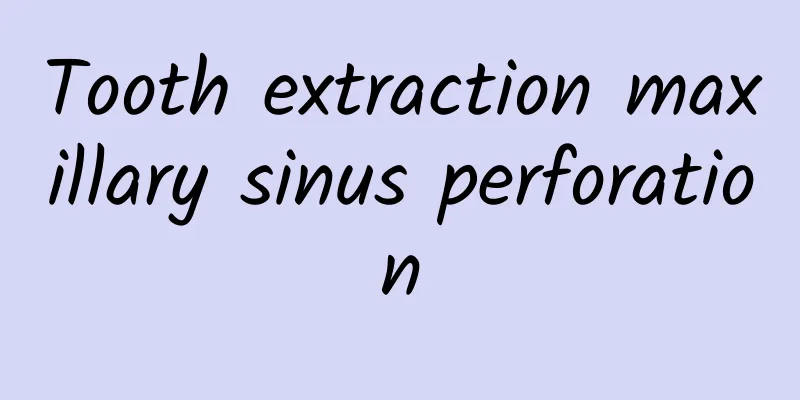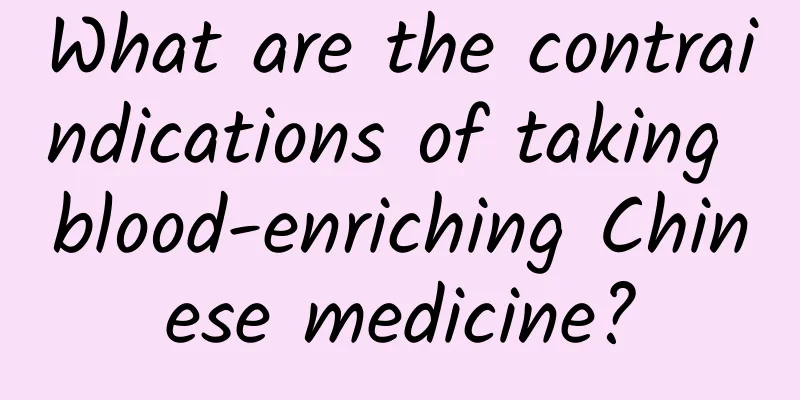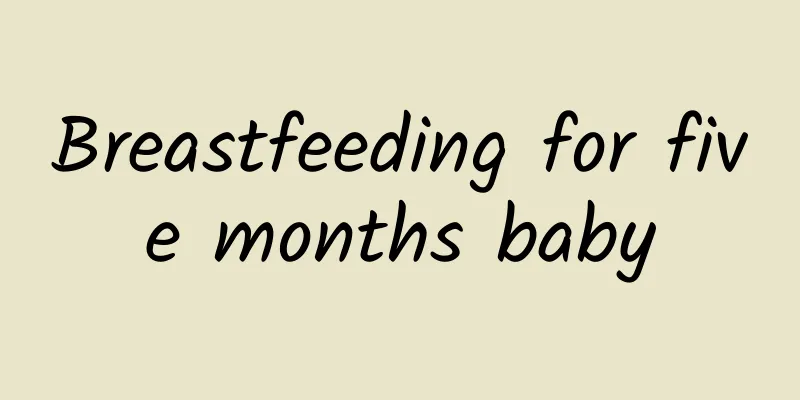Tooth extraction maxillary sinus perforation

|
When the problem with teeth is serious, they most likely need to be extracted. Although tooth extraction is a relatively mature medical technique, there are still cases where maxillary sinus perforation occurs during tooth extraction? This should be the hospital's responsibility. While holding those responsible accountable, they must also provide timely rescue. Generally, you need to look at the location and size of the perforation first, and then decide which method to choose to remedy it. When maxillary sinus perforation occurs, you should pay attention to regular tooth brushing and personal oral hygiene. 1. Is it the hospital's responsibility if a tooth extraction causes maxillary sinus perforation? If the tooth was in the maxillary sinus before extraction, it is normal to have a maxillary sinus fistula after extraction. If the tooth was not originally in the maxillary sinus and the doctor pushed the tooth root into the maxillary sinus during the extraction process, it is the doctor's responsibility. 2. Treatment measures for maxillary sinus leakage after tooth extraction You should first take a panoramic film to check the location and size of the leak. If the patient pinches his nose and blows air, you can see bubbles being discharged from the alveolar socket. This type of piercing can be healed closed by filling it with gelatin sponge. If the perforation is large and forms a maxillary sinus-oral fistula, it needs to be repaired. When repairing, first of all, we need to check whether the patient's sinusitis is serious and whether there is purulent secretion. If the inflammation is serious and there is purulent secretion, antibacterial drugs should be used before the repair and the maxillary sinus should be flushed to control the infection before the repair. Generally, a buccal sliding mucoperiosteal flap repair is used. Antibiotics should be continued for at least 1 week after surgery, and 1% ephedrine should be used as nasal drops to facilitate the natural drainage of the maxillary sinus. Pay attention to oral hygiene and avoid blowing your nose and sneezing. The stitches can be removed 10 days after surgery. 3. Precautions after maxillary sinus perforation Don't brush your teeth. Buy a bottle of mouthwash with less irritation (with anti-inflammatory effect) and use it after meals and before going to bed. Avoid: Avoid spicy food, irritating food, and hard food. Try to eat liquid food and pay attention to nutritional supplements (such as fish soup). Note: Do not try to blow air to determine whether the wound has healed. Mine healed in about 3 weeks, and there has been no problem for 4 years. Buy anti-inflammatory drugs and take them on time (I was taking drugs for sinusitis at the time), be careful not to catch a cold, and avoid any form of oral pressure. |
<<: Eardrum perforation healing process
>>: What to do if you have a nasal septum perforation
Recommend
Can pregnant women wear contact lenses?
Everyone knows that pregnant women are a special ...
How to regulate liver, spleen and kidney problems?
It is a well-known fact that bad living habits ca...
What causes bloating?
Many friends have experienced the problem of abdo...
How does high paraplegia solve defecation? It turns out that there are these characteristics
After suffering from high-level paraplegia, the p...
Treatment of liver cysts
Liver cyst is a common benign liver disease, whic...
The efficacy of drinking Polygonum multiflorum in water
In our lives, there are many kinds of food ingred...
Sequelae of bulla surgery, scientific surgery has a good prognosis
Generally, bullae do not require treatment if the...
Can loquat seeds be eaten? This is what happens after eating it!
Loquat is a very common fruit in daily life. Regu...
What medicine should I take for carpal tunnel syndrome?
People who work on computers and those who like t...
What is the reason for large ejaculation volume?
Generally speaking, if there is a lot of semen du...
Can cactus cure stomach problems?
The treatment of stomach problems relies on 30% t...
What are the causes of female calf pain?
If a woman experiences swollen and painful calves...
What is the difference between developmental delay and cerebral palsy?
Developmental delay and cerebral palsy are often ...
The efficacy of Niu Gan fruit wine
Niugan fruit is also called post-amphiglucan frui...
What is the cause of a lump under the ear?
The human body is changing every day. A small bum...









